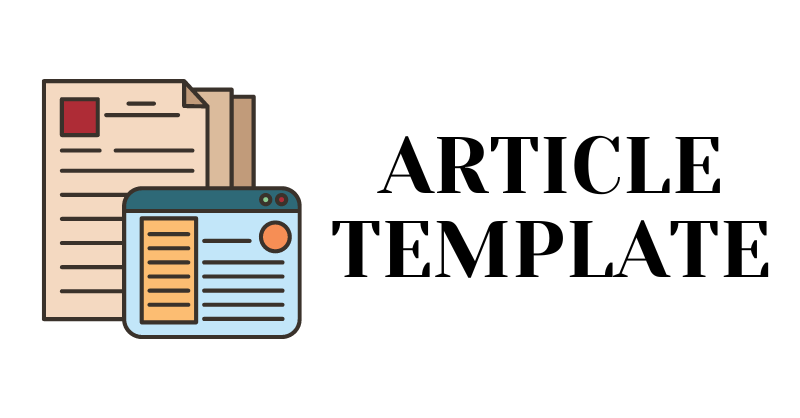KEWAJIBAN BAKO MENAFKAHI ANAK SETELAH AYAH WAFAT: STUDI TENTANG NAFKAH DI KECAMATAN SUNGAI TARAB
DOI:
https://doi.org/10.31958/jisrah.v4i1.9344Kata Kunci:
Bako, Livelihood, Islamic LawAbstrak
This research examines how the obligation of bako to support children whose father has died in Minangkabau, how is the view of Islamic law towards the obligation of bako to provide for children whose father has died in Sungai Tarab District. The purpose of this research is to find out the obligation of Bako to provide for children whose father has died in Minangkabau and to find out how Islamic law views the obligation of Bako to provide for children whose father has died in Sungai Tarab District. This type of research is field research. Data collection was carried out through interviews with respondents, namely niniak mamak, religious scholars, cadiak clever and bundo kanduang in Sungai Tarab District, the form of interviews used was semi-structured interviews. Data processing is done by analyzing the data using descriptive qualitative analysis techniques. The data analysis technique that the writer uses is Data Reduction, Data Presentation, and Conclusion Drawing. The responsibility of the father's family to provide for the child after the father dies in Sungai Tarab Subdistrict, as stated in article 104 of the Compilation of Laws which reads "If the father has passed away, the cost of breastfeeding shall be borne by the person who is responsible to the father or his guardian." A living must be given to children who have not been able to work to meet their own needs, especially for children who are still babies or are still breastfeeding, even though the father's family has provided for the child but does not meet their needs because they do not routinely provide a living, especially for the father's family which does not provide for the child at all even though the child has tried asking for a living, it can be seen that the responsibility or obligation of the father's family to provide for the child after the father dies is not by Islamic law.
Referensi
Amalia, L. (2019). Implementasi Hak Anak dan Nafkah Pasca Perceraian. IAIN Metro, 10.
Az-Zuhaili, W. (2011). terj. Fiqih Islam Wa Adillatuhu jilid 10. Jakarta: Gema Insani.
Elimartati, & Firdaus. (2018). Hak Hadhanah Dalam Putusan Pengadilan Agama. Jurnal Ilmiah Syariah, Volume 17, Nomor 2, 235.
Farisi, F. A. (2022). Hak-Hak Anak Yatim Menurut Hukum Islam dan Hukum Positif . UIN Sunan Ampel Surabaya.
Kurnaini, H. (2017). Pemenuhan Hak Nafkah Anak Sebagai Salah Satu Pola Terhadap Perlindungan Anak: Analisis Pemikiran a. Hamid Sarong. Jurnal Kajian Ilmu Hukum dan Syariah, Volume 2, Nomor 1.
Mardani. (2014). Tafsir Ahkam. Yogyakarta: Pustaka Belajar.
Masnaeni. (2021). Pemenuhan Nafkah Lahir dan Batin Keluarga Dalam Perspektif Hukum Islam. IAIN Makassar, 13.
Munir, M. (2015). Sistem Kekerabatan Dalam Kebudayaan Minangkabau Perspektif Aliran Filsafat Hukum Islam. Jurnal Filsafat, Volume 25, Nomor 1, 2.
Putri, S. E. (2021). Social Values in Funerary Ceremony Research on Lintau Buo Community, Tanah Datar Regency. Alfuad: Jurnal Sosial Keagamaan, 5(2), 26. https://doi.org/10.31958/jsk.v5i2.4263
Putri, S. E. (2022). Realitas Fungsional Saweran Dalam Pesta Pernikahan. Jurnal Analisa Sosiologi, 11(4), 624–640. https://doi.org/10.20961/jas.v11i4.61737
Putri, S. E., Bustamin, B., & Islami, M. H. (2022). SOSIALISASI POLA ASUH ANAK BERKEBUTUHAN KHUSUS DI YAYASAN RUMAH GADANG CEREBRAL PALSY SUMATERA BARAT. Menara Pengabdian, 1(1).
Rofiq, A. (2017). Hukum Perdata Islam di Indonesia. Depok: PT Raja Grafindo Persada.
Sheha, E. (2019). Pemberian Nafkah Anak Oleh Orang Tua di Panti Asuhan ar-Rohmah Semarang Dalam Perspektif Maqasyid Syariah. UIN Walisongo, 28.
Kompilasi Hukum Islam Pasal 104
Undang-Undang No 1 Tahun 1974 Pasal 74 Tentang Perkawinan
Dt. Lelo Barenda.(2023). Niniak Mamak, Nagari Gurun, Wawancara, 7 Januari
Indra Jhoni. (2023). Cadiak Pandai, Nagari Gurun, Wawancara, 8 Januari
Malin. (2023). Alim Ulama, Nagari Gurun, Wawancara, 8 januari
Emizar A. (2023). Bundo Kanduang, Nagari Gurun, Wawancara, 8 Januari
##submission.downloads##
Diterbitkan
Terbitan
Bagian
Lisensi
Hak Cipta (c) 2023 Dheana Permata Sandy, Khairina Khairina

Artikel ini berlisensi Creative Commons Attribution-NonCommercial-NoDerivatives 4.0 International License.
Authors who publish with this journal agree to the following terms:- Authors retain copyright and grant the journal right of first publication with the work simultaneously licensed under a?áCreative Commons Attribution License?áthat allows others to share the work with an acknowledgement of the work's authorship and initial publication in this journal.
- Authors are able to enter into separate, additional contractual arrangements for the non-exclusive distribution of the journal's published version of the work (e.g., post it to an institutional repository or publish it in a book), with an acknowledgement of its initial publication in this journal.
- Authors are permitted and encouraged to post their work online (e.g., in institutional repositories or on their website) prior to and during the submission process, as it can lead to productive exchanges, as well as earlier and greater citation of published work (See?áThe Effect of Open Access).



